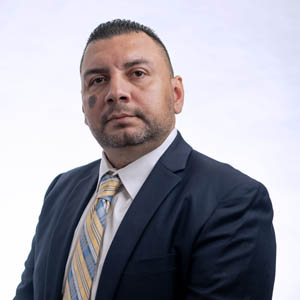Powerless in Puerto Rico: A literal and metaphorical crisis

As Puerto Rico braces for hurricane season, an unsettling announcement jolted the public and business sectors: LUMA Energy has declared it lacks sufficient funds to manage increased demand during the storms.
This revelation is not merely an operational hiccup — it speaks to a deeper, ongoing crisis that is both literal and metaphorical. Puerto Ricans are powerlessly vulnerable to two relentless storms: the natural forces of hurricanes and the man-made failures in public policy guiding our power infrastructure.
The near miss of Hurricane Erin served as a stark reminder of how fragile our electrical grid remains. Although the eye of the storm spared us, the tremors it sent rippling through the island’s energy system underscored persistent vulnerabilities. Year after year, our grid buckles, highlighting that the threat isn’t only in the weather but in how infrastructure is managed and maintained.
LUMA’s recent statements that its budget cannot keep up with essential maintenance demand raise red flags for anyone dependent on electricity for everyday life or business operations. This admission comes as the island enters what forecasters predict will be an active and volatile hurricane season. Adding insult to injury, proposals to pass on temporary price hikes to consumers are underway — placing additional financial strain on a population still grappling with economic recovery.
Puerto Rico aspires to growth. New business ventures and foreign investments promise a brighter economic future, but all these efforts risk being undermined if we cannot guarantee a basic necessity: power. Without a reliable grid, how can we celebrate innovation? How can small businesses operate when voltage spikes fry computers, appliances and crucial equipment? The recurring damage during every surge is a costly reminder that the system’s instability is more than a nuisance — it’s a threat to livelihoods.
Responsibility for this crisis has become a hot potato, with no clear, coordinated action plan emerging. The fragmented approach to power management is more than an operational setback; it’s entering the realm of public safety. The fiscal oversight under the Puerto Rico Oversight, Management and Economic Stability Act (Promesa), despite recent reforms, has yet to prioritize the intersection of infrastructure quality and quality of life — a connection that must be central in public discourse moving forward.
The people of Puerto Rico deserve to see the light at the end of the tunnel, but as things stand, even keeping the lights on feels like a distant dream. This is no longer just about energy or economics — it is a matter of dignity, resilience and survival in an island that has already weathered too many storms.
The question remains: Can LUMA, tasked with managing this critical infrastructure, rise to the challenge — or will Puerto Ricans be left powerless in every sense of the word?

Antonio Santos is a hospitality and tourism professional with more than 30 years of industry experience. In 2024, he ran for the Puerto Rico House of Representatives, representing San Juan’s District 1 under the Proyecto Dignidad party. He advocates for entrepreneurship and policies that promote small government and economic independence, drawing on his background in hospitality to support sustainable growth and opportunity on the island.




